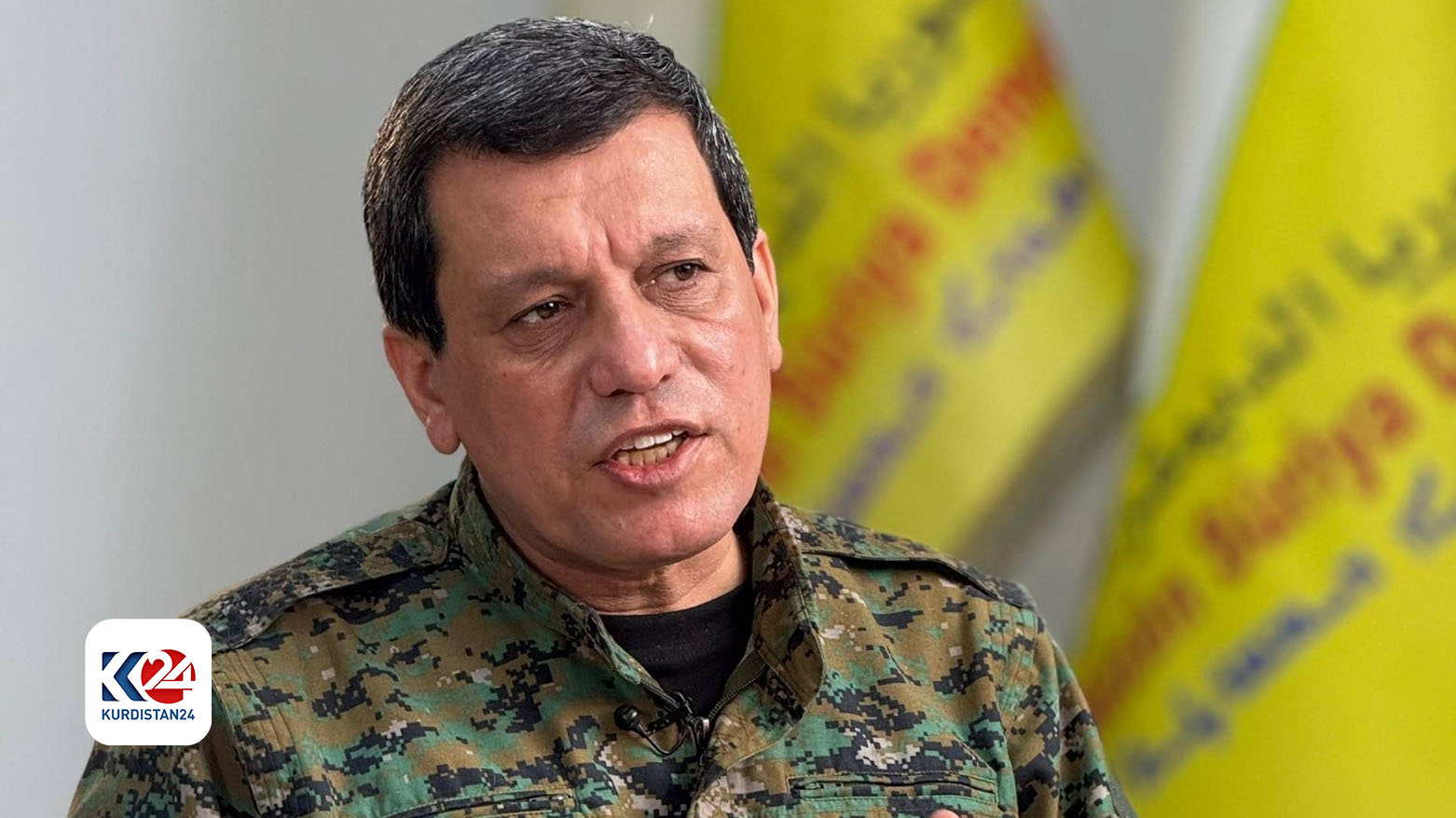SDF Commander reasserts local autonomy in North and East Syria
Abdi stated that SDF forces are ready to integrate into the new Syrian army once a suitable formula is negotiated. He also expressed willingness in 'principle' to transfer border security responsibilities to the new authorities in Damascus.

Dec. 27, 2024
ERBIL (Kurdistan24) - Syrian Democratic Forces (SDF – Hêzên Sûriya Demokratîk) Commander Mazloum Abdi has revealed constant field coordination with military operations since the second day of the deterrence battles, despite the absence of direct political negotiations with Hayat Tahrir al-Sham (HTS), led by Ahmed al-Sharaa.
He stated that SDF forces are ready to integrate into the new Syrian army once a suitable formula is negotiated.
During an interview with Asharq al-Awsat newspaper, Abdi underlined the significance of upholding Syria's unity while leaving the determination of its political system to the Syrian people's will and constitutional discussions.
Abdi cautioned of a likely calamity threatening Kobani city amid constant Turkish military mobilization, noting that despite SDF's initiative through mediators for a demilitarized zone, Ankara has not responded yet.
He asked for immediate, wide-ranging, and direct dialogue to attain peace and security, allowing Syria to move forward with reconstruction.
Abdi also expressed willingness in principle to transfer border security responsibilities to the new authorities in Damascus.
Concerning coordination between SDF and HTS during the battles with the ousted Assad regime, Abdi clarified that while there was no prior coordination before HTS's deterrence operation, field coordination began on the second day of combat to evade clashes between their forces in some Aleppo neighborhoods and to evacuate displaced people from camps in the Tall Rifat area, which faced attacks from Turkish-backed factions.
Regarding the new state's structure and political system, Abdi stated, "We haven't yet reached direct negotiations with HTS, but we believe Syria should be a decentralized, pluralistic, democratic state where the country's diverse identity and the rights of all Syrian components, including the Kurdish people, are constitutionally protected."
He added that they're not looking to divide Syria and are prepared to partake in the country's reconstruction and governance.
"Syria has seen much bloodshed. We urgently request wide-ranging and direct dialogue to achieve an era of peace and security so Syria can move forward and rebuild."
Regarding relations with the Kurdistan Workers' Party (PKK), Abdi explained that the SDF has no organizational ties with the PKK.
He clarified that some PKK members and others who joined their fight against ISIS would be withdrawn once military operations stop and a suitable mechanism is established.
He highlighted that decision-making in north and east Syria has always been, and will remain, in the hands of local residents.
Abdi concluded by saying that the return of Rojava Peshmerga members from abroad to contribute to their homeland's rebuilding would be natural.
